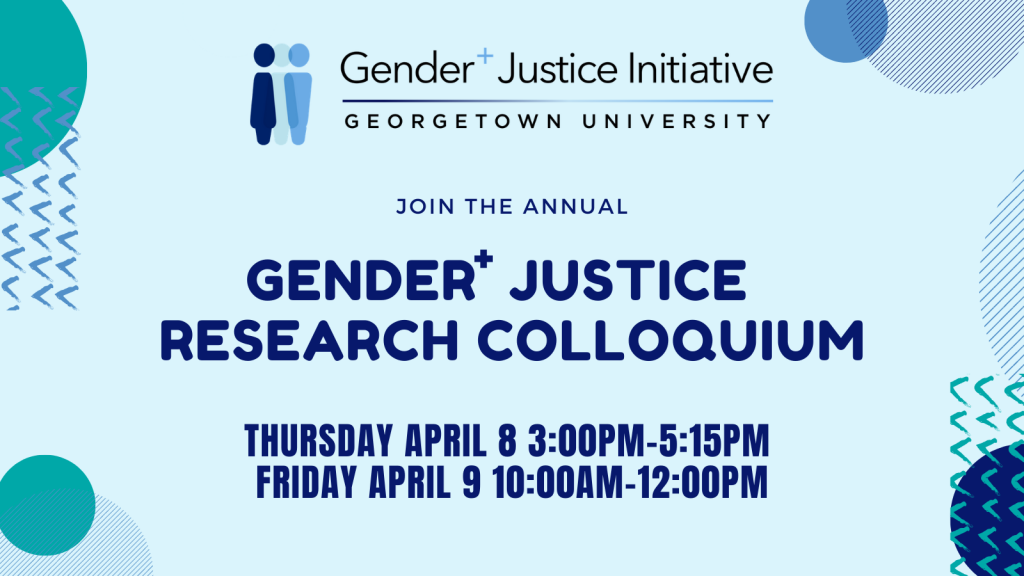Melicia Escobar
G+JI Faculty Fellow 2021

Melicia Escobar, Clinical Faculty Director and Doctor of Nursing Practice Student (DNP), Georgetown University School of Nursing & Health Studies
Melicia Escobar (she/her) is a midwife/WHNP who is passionate about developing robust and inclusive curricula that illuminates health equity and the racism that undermines it. She believes that the midwifery model of care at its best offers innovative ways to improve the health and well-being of communities, address inequities within healthcare and healthcare professions, and grow out a diverse midwifery workforce. She has clinical expertise across a variety of settings and populations. Her scholarly work includes contributions to peer-reviewed journals and chapters in widely-utilized midwifery/women’s health texts. She holds several leadership positions within her professional organization. More about Melicia Escobar.
Presentation:
Professors Melicia Escobar and Christina Marea presented at the 2021 G+JI Research Colloquium on Integrating a Health Equity Framework for Health Professional Education 03:54

Publication:
Read this piece by Bradford, H. M., Farley, C. L., Escobar, M., Heitzler, E. T., Tringali, T., & Walker, K. C on Curricular Innovations During COVID-19 via Simulations for the Journal of Midwifery & Women’s Health

Research Project: Evaluating an Innovative Health Equity Curriculum
What is your research topic and why?
Racism, sexism, heterosexism, gender-binarism, weight bias, classism and other such “isms” undermine equitable distribution of the social determinants of health. Biases hinder the ability of health professionals to see intersectional identities and experiences of people in their care which further compounds and upholds detrimental systems that are barriers to wellness. This contributes to misdiagnosis, mistreatment, and harm of patients and empathy decline and burnout among providers. This project evaluates a health equity curriculum designed and implemented within a NM/WHNP & WHNP program to teach students how to incorporate concepts of structural competency, intersectionality, and patient-centeredness into their care as an upstream intervention and investment that may address health equity in the clinical setting.
Research Question(s)
Among practicing CNMs and/or WHNP graduates from Georgetown’s NM/WHNP & WHNP Program, how does having participated in the Health Equity Curriculum affect self-efficacy in applying principles of patient-centered care for health equity in clinical care as compared to those who did not participate?
Research Methodology
A mixed methods study will be conducted through an anonymous online survey and voluntary interviews among GU graduates of the NM/WHNP & WHNP program using the Kirkpatrick-Barr Evaluation Model. The survey features the use of a validated tool, the Self-Efficacy in Patient Centeredness Questionnaire (SEPCQ-27). The semi-structured interviews are structured to gain a deeper understanding of participant responses provided in the survey.
Significant or Surprising Findings
I am interested to see what findings the survey and interviews will yield. Preliminary interviews conducted with program graduates suggested that participation in the health equity curriculum made them feel more prepared in one-on-one patient interactions, but that the institutions where they worked (the culture, the policies, etc) were either facilitators or barriers to their ability to promote health equity in the most patient-centered way. For me, this reaffirmed the importance of continuing to incorporate a structural competency approach in our curriculum.
Summary of Findings or Progress:
At this point in my DNP work, the following parts of my project have been drafted with the support of my DNP team: Introduction, background, literature review, selection/description of a theoretical framework, rationale for the project, research question, project aims, project design, procedures and timeline, descriptions of instruments and tools, and data analysis plan. An IRB application is in the process of being finalized and will be submitted for GU IRB review with the goal of implementation in late August 2021.
My findings thus far are limited to the literature review as implementation has not yet occurred. The review of literature demonstrates that there is limited data with regard to interventions specifically geared towards holistically addressing health equity within health education professional education despite emerging data demonstrating that all levels racism and a variety of personally-held biases undermine health and wellness of populations who are among the most historically discriminated and now vulnerable. It has been demonstrated that patient-centeredness and structural competency in the administration of health care may have the effect of mitigating poor outcomes among patients as well as reducing empathy decline and burnout among providers. These findings, and that they were so limited, guided the project design and reaffirmed the relevance and importance of further exploration.